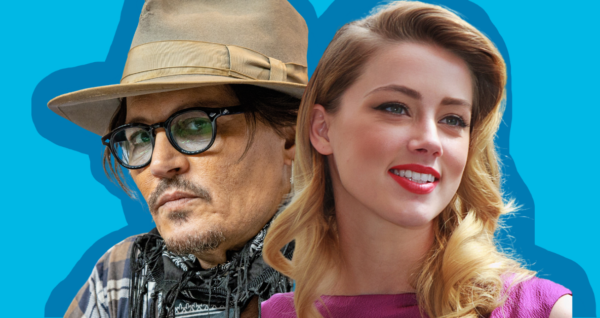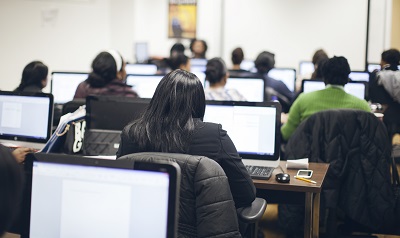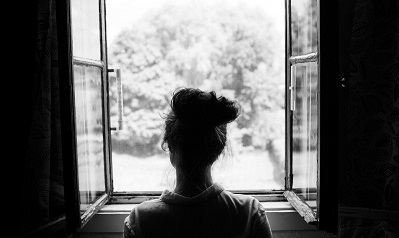A collection of powerful articles that elevate survivors’ voices and discuss the severity and long-term implications of the Depp v. Heard trial and its verdict.
Watching the Depp v. Heard trial turn into a spectacle of misogyny has been demoralizing and triggering for many of us, especially for survivors of gender violence.
Whatever the facts, we know that there was a concerted effort to use this trial as a means to discredit the #MeToo movement, minimize the severity of violence against women and girls, and force survivors back into silence.
To counter the aggressive levels of misinformation that have, sadly, shaped public discourse, we wanted to share a collection of powerful articles that elevate survivors’ voices and discuss the severity and long-term implications of the trial and its verdict.
The New Yorker | The Johnny Depp-Amber Heard Verdict Is Chilling
Many victims of domestic violence who watched this trial will likely conclude that, if they share their experiences, they will be disbelieved, shamed, and ostracized. [READ MORE]
The Cut | How Did Johnny Depp Become the Good Guy?
Depp v. Heard put the actor’s misogyny on full display. For his fans, he still walked away the hero. [READ MORE]
VICE | The Daily Wire Spent Thousands of Dollars Promoting Anti-Amber Heard Propaganda
The conservative media outlet ran Facebook and Instagram ads for stories backing Johnny Depp, an investigation by media non-profit the Citizens for VICE World News found. [READ MORE]
The Cut | The Inescapable Horror of Depp v. Heard
The Depp v. Heard trial has revealed a collective lack of empathy for survivors and an ignorance of the very real effects that public discussion of abuse has on some people who’ve lived through it. [READ MORE]
TIME | Depp v. Heard Reminds Us That the Legal System Is Still Stacked Against Survivors
Online, Depp’s supporters are rejoicing, insisting that his victory serves as proof that the #MeToo movement went too far. But the verdict is actually proof the #MeToo movement hasn’t gone far enough. [READ MORE]
TIME | The Depp-Heard Trial Perpetuates the Myth of the Perfect Victim
Perpetuating the “perfect victim” myth will have long-term consequences. Already, women are expressing trepidation about coming forward with allegations of abuse following the Heard-Depp trial. [READ MORE]
NBC News | Johnny Depp’s Amber Heard trial verdict will have a devastating chilling effect
As a Black woman, survivor of domestic abuse and writer who has penned work detailing my abuse, I will be haunted by this verdict and its implications for years to come. [READ MORE]
19th News | Johnny Depp trial unlocks new way for abusers to exert power over survivors, experts worry
Experts say that the amount of attention on this trial is offering abusers a look at a whole new way of potentially exerting power over a survivor. [READ MORE]
USA Today | What the Amber Heard, Johnny Depp trial didn’t cover: The violence bisexual women face
Heard’s sexuality was not an explicit part of the trial, and while experts say they were glad to see that her bisexuality wasn’t used against her, they wished coverage could have done more to address the ways in which a person’s sexual identity can contribute to vulnerability. [READ MORE]
The New York Times | Amber Heard: I ‘Stand by Every Word’ of Testimony in Defamation Trial
In her first public interview since losing a defamation case brought against her by Johnny Depp, her ex-husband, Ms. Heard said she had told the truth when she accused him of abuse. [READ MORE]
The Daily Beast | Unsealed Johnny Depp v. Amber Heard Court Documents Reveal Shocking New Claims
More than 6,000 pages of docs were unsealed in the Depp v. Heard defamation saga, including Heard’s worry that Depp would use her nude pics and the exclusion of Marilyn Manson. [READ MORE]
Vulture | Could Amber Heard Win Her Appeal Against Johnny Depp?
For Heard, an appeal reflects her insistence that her allegations of abuse are true. An appeal also provides an opportunity for Heard’s case to be argued more thoroughly on First Amendment grounds. [READ MORE]
Amber Heard photo modified from author gdcgraphics. This file is licensed under the Creative Commons Attribution-Share Alike 2.0 Generic license.
Johnny Depp photo modified from author Harald Krichel. This file is licensed under the Creative Commons Attribution-Share Alike 3.0 Unported license.



